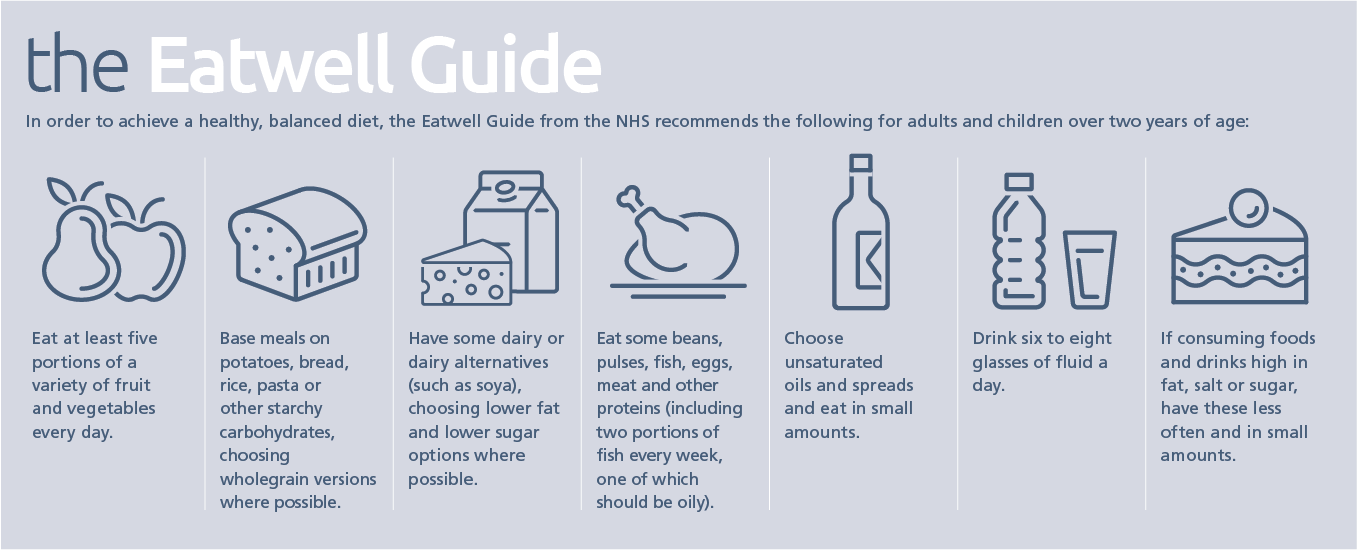In OTC Category Reviews
Follow this topic
Bookmark
Record learning outcomes
There is growing evidence that a reality gap is developing between what teenagers and young adults say and do about eating a healthy diet.
Evidence from the National Diet and Nutrition Survey (NDNS) rolling programme – a continuous cross-sectional survey that is designed to assess the diet, nutrient intake and nutritional status of the general population – shows that the vast majority of young people are not eating a healthy, well-balanced diet, and that the vitamin and mineral intake in those aged 11-18 years is falling. In fact, teenage diets have been getting worse for the last decade.
However, a new poll commissioned by Health and Food Supplements Information Service (HSIS) shows that UK adults are blissfully unaware of the nutrition shortfalls affecting teenagers and young adults, with most adults scoring young people’s diets at least seven out of 10 for healthiness.
Teenagers experience many physical and lifestyle changes, so having a healthy and varied diet is essential to ensure that they receive all the energy and nutrients they need to concentrate well at school and participate in sports and activities, as well as contribute to good health now and in adulthood. Dr David Edwards, GP, comments: “Nutrient depletion in younger life negatively impacts all areas of wellbeing from how we look and feel, emotional health, energy levels and digestion.”
Dr Gill Jenkins, GP, agrees, saying that the lack of awareness that teenage diets are largely unhealthy is a cause for concern as it is having a negative impact on their vitamin and mineral intake, as well as other health issues such as obesity, type 2 diabetes and cardiovascular disease in later life. “It is unlikely that diets of young adults will change quickly enough, so in the meantime, a daily multivitamin supplement plus a fish oil supplement should be recommended for all teenagers and young adults,” she advises.
Piling on the pressure
While children in primary schools are encouraged to develop healthy eating habits and behaviours, this doesn’t always follow through to the teenage years. Starting secondary school, leaving home for university or starting a first job are all examples of when teenagers and young adults have more independence and freedom to choose what they eat and how they spend their spare time. Peer group pressure increases during this life stage too, and can have an impact on how teenagers and young adults think about their body size, appearance and the effects of what they eat.
Pressure around body image can lead some teenagers to exercise excessively, skip meals and follow unnecessary weight loss diets, which may involve limiting food intake or eliminating whole food groups. In extreme cases, this can lead to eating disorders such as bulimia and anorexia nervosa. More generally, it may mean that teenagers are not getting the vitamins and nutrients they need, causing them to feel unwell, irritable, fatigued and tired.
In addition, data from the HSIS poll highlighted that almost half of participants described their children as “fussy eaters”, with 19 per cent being fussy “sometimes”. This does not necessarily mean following a fad diet, but being concerned about what food groups they consume. For example, 32 per cent refused to eat green vegetables, which are essential for vitamins and minerals, while 34 per cent refused to eat oily fish – an essential source of omega-3 fatty acids.
Data from the HSIS poll also highlighted that almost a quarter (24 per cent) of teenagers and young adults eat different meals to the rest of the household, and 37 per cent of 16-29-year-olds do not plan their meals, which may also contribute to the lack of essential nutrients in the diet of teenagers.
A shift towards plant-based diets by young adults and teenagers could also be adding to the risk of nutrient shortfalls. A new research review published in the Journal of food science and nutrition confirmed that plant-based diets are often seen as healthy, but are in fact leaving people lacking in vitamin B12, vitamin D, iron and zinc. Carrie Ruxton, dietitian and HSIS adviser comments: “These nutrients are needed to support health, but often people following vegetarian or vegan diets aren’t aware that some of these nutrients can be tough to get from plant sources.”
The lack of iron and vitamin B in teenagers choosing to follow a plant-based diet should be addressed promptly. It can cause tiredness and fatigue, which may greatly impact their day-to-day life. To balance this, pharmacy teams can recommend taking a supplement containing 14mg of iron, which is the recommended daily intake.
The perils of processed food
A recent study published in the BMJ Open journal, which analysed data from the NDNS, shows intakes of saturated fats, salt and added sugars are above the recommended levels in young people, in part due to the growth of ultra-processed food habits. More than two thirds (68 per cent) of energy – or calories – in diets of 11-18-years-olds is derived from ultra-processed foods. In the same age group, just over a quarter (27 per cent) of energy came from unprocessed food, minimally processed food or culinary ingredients.
The result is that the number of people in the UK who are overweight or obese is increasing. Obesity is linked to over 9,000 premature deaths a year in the UK and is thought to pose just as much of a health risk as smoking. Being overweight or obese is damaging as they are at a higher risk of developing type 2 diabetes, heart disease, high blood pressure, strokes and cancer. For most people, being overweight or obese occurs over a period of years from the early twenties, but for others it starts in childhood.
“Those who are obese often have a low status of micronutrients – either as a consequence of imbalanced weight loss diets or because their body fat traps fat-soluble vitamins such as vitamin D,” says Carrie. “This is why good advice on achieving recommendations for vitamins, minerals, omega-3 fats and fibre intake, should sit alongside the traditional advice to consume less saturated fat, sugar and salt.”
The Government has been trying to change the way people think about eating healthy and staying active through a number of campaigns including Change4Life, which offers advice on exercise, diet and healthy eating habits.

Balancing it out
Teenagers need lots of energy and nutrients because body growth and development is rapid during the teenage years. Young people might need more or less energy depending on a number of different factors, including age, sex and how physically active they are. It is estimated that boys aged between 13 and 18 years require between 2,414 and 3,155 calories daily, while girls in this age group require between 2,225 to 2,462.
Having the right amount of energy is important, but diets also need to be well balanced and contain plenty of fresh fruit and vegetables, while avoiding too much saturated fat, sugar and salt.
Eating too much sugar is a concern, as it can lead to weight gain, which increases the risk of heart disease, type 2 diabetes, stroke and some cancers, as well as causing tooth decay. Pharmacy teams can advise customers about ways to reduce sugar intake, such as offering sugar swap advice. For example, instead of having cereals with a high sugar content, swap for porridge with added fruit, or replace sugary drinks with low-sugar alternatives. The NHS Change4life Food scanner app can be downloaded from the App Store or Google Play to help people track the nutritional content of the foods they eat.
A balanced diet involves consuming the right types and amounts of food and drink to supply nutrition and energy to the body. This helps the body to maintain its functions and support normal growth and development. The NHS Eatwell guide shows the proportions of food groups that should be consumed to help to achieve a healthy balanced diet (see picture below).
Pharmacy teams can play an important role in openingup discussions about the benefits of healthy eating. As part of the Healthy Living Pharmacy initiative, having a display of posters available from the Change4life campaign and the British Nutrition Foundation can be useful to engage customers and offer them information and prompts for conversations. Following up with advice about vitamin supplements after a brief chat about diet and exercise can be a great way to offer a customer-focused service that will highlight to customers the value of visiting a pharmacy for health advice.
Click the image below to enlarge.
Supporting the immune system
A well-functioning immune system is key to providing a robust defence against bacteria and viruses."There is no particular food or nutritional supplement that can stop people from getting infected by viruses or bacteria," says Carrie Ruxton, dietitian and HSIS adviser. "However, diet, nutrition and nutritional status are important in supporting immune function to help combat illness and infections."
After being infected by a virus or bacteria there is an increased demand for energy and nutrients that helps the body fight off the infection. The nutrients play a role in the various immune responses that occur in the body, including producing anti-inflammatory agents, antibodies, and amino acids. Having inadequate nutrient supplies or status can impair immune function, which can lead to an increased severity of infection or recovery time from the infections. There is much evidence to show that several nutrients are essential for good immune functions.
Vitamins A, B6, B12, C, D, E and folic acid, as well as trace elements such as zinc, iron, selenium, magnesium and copper all play a role in supporting a good immune system.These micronutrients support both innate immunity – a quick response baseline protection that is present from birth – and adaptive immunity – a learnt immune memory that enables the body to recognise specific viruses and bacteria each time they attack.
The omega-3 fatty acids eicosapentaenoic acid (EPA) and docosahexaenoic acid (DHA) play an important and complementary role in supporting the adaptive immune system, mainly through balancing the inflammatory response, according to nutritionist Pam Mason. This is particularly important during winter months when there are many different virus strains circulating.
As evidence from the NDNS and the HSIS, reports confirm, consumption of oily fish – the only source of long-chain omega-3 fatty acids – is low. Therefore, Carrie recommends that “teenagers take a omega-3 supplement, such as fish oil or algae-based supplements”.
Vitamin C (also known as ascorbic acid) is found naturally in vegetables and fruits, especially citrus fruits, it is an antioxidant and helps to protect and keep cells healthy and plays a role in wound healing. A review of different research data has shown that high doses of vitamin C (over 200mg per day) may not help prevent cold in most people, but it may help reduce the duration of a cold by up to eight per cent.
Vitamin D has well established effects in regulating immune function. Vitamin D receptors are found on T and B immune cells, suggesting that it is linked to supporting the immune system.
For the winter months, pharmacy teams can recommending that teenagers and young adults take a regular multivitamin supplement, ensuring they achieve the 10 micrograms of vitamin D daily recommended by the Department of Health and Social Care. An additional supplement of omega-3 can also be advised.


